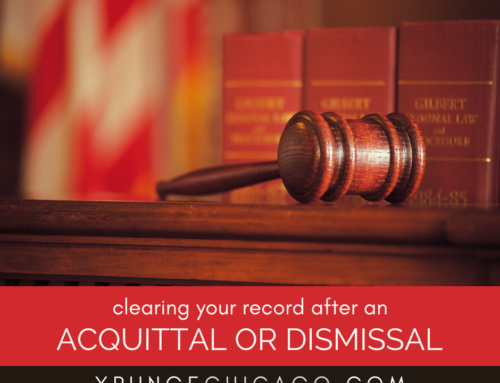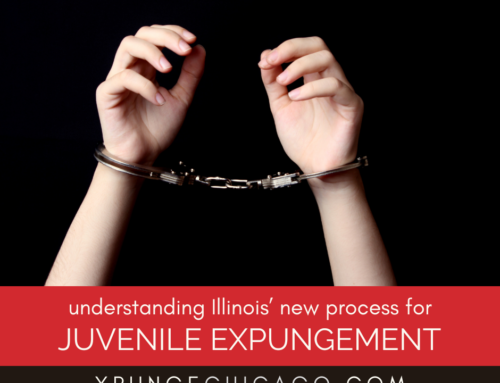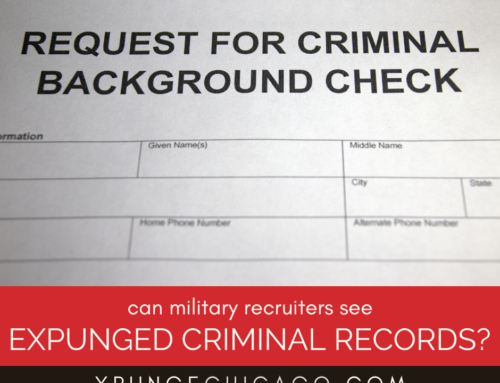
Navigating the legal landscape of expungement and sealing in Illinois can be overwhelming. With laws, procedures, and paperwork to consider, it’s easy to feel lost. But with the right lawyer by your side, the journey can become significantly smoother. This guide explains the following:
- Understanding the difference between expungement and sealing
- The role of a lawyer in the expungement process
- How a lawyer can simplify the paperwork
- Representing you in court
- Addressing any objections or complications
Here’s a closer look at each.
Understanding the Difference Between Expungement and Sealing
In Illinois, when discussing the handling of criminal records, two terms frequently arise: expungement and sealing. Expungement is like an eraser. It’s a legal procedure that entirely removes a criminal record, as if the incident never transpired. It’s like making an error in a notebook and then erasing it, ensuring no one can ever discern it existed. On the other hand, sealing is more about concealing that notebook. The error, or the criminal record, persists, but it’s hidden from the majority. However, specific entities, such as police departments or governmental agencies, can access it, especially during a fingerprint-based background check. Expungement typically pertains to arrests that didn’t culminate in convictions, charges that were dropped, or cases where a not guilty verdict was reached. Sealing, conversely, is more about convictions. Yet, it’s crucial to remember that not all convictions are eligible for sealing. For instance, violent crime convictions generally remain visible.
The Role of a Lawyer in the Expungement Process
Retaining a lawyer is analogous to having a seasoned guide when traversing an unfamiliar forest. They’re well-versed with the terrain and can assist you in navigating through the intricate pathways. Lawyers specializing in expungement are privy to the nuances of the procedure. They can assess your eligibility, ensuring you’re aware of the available options. Not everyone qualifies for expungement or sealing, and a lawyer can meticulously review your criminal history to delineate your potential avenues. Moreover, there are unique provisions, such as those tailored for veterans, that can significantly influence the process. An informed lawyer can elucidate these exceptions and their potential implications for your case.
How a Lawyer Can Simplify the Paperwork
Legal documentation can be a labyrinth of intricate jargon and stipulations. It often feels like trying to assemble an elaborate piece of furniture with a perplexing manual. In these scenarios, a lawyer functions as both your interpreter and facilitator. They ensure every document is accurately filled, adhering to all stipulations, and submitted punctually. They’re adept at collating all requisite details, from arrest specifics to case outcomes, guaranteeing a comprehensive application. Furthermore, they’re acutely aware of the pivotal nature of deadlines in legal processes, ensuring timely submissions and preventing potential derailments due to technicalities.
Representing You in Court
Occasionally, the journey to expungement or sealing mandates an appearance before a judge, especially if there’s opposition to your petition. In these instances, having a lawyer is tantamount to having a proficient spokesperson. They can articulate compelling arguments, underscoring why you merit the expungement or sealing of your record. If the judge or the State’s Attorney raises queries or reservations, your lawyer is equipped to address them, ensuring a lucid and persuasive presentation of your case.
Addressing Any Objections or Complications
The trajectory to expungement or sealing isn’t invariably linear. Potential hurdles, such as objections from the State’s Attorney or unforeseen complications with your record, can emerge. In these situations, a lawyer serves as your dedicated problem-solver. They’re skilled at countering objections, presenting cogent evidence or arguments that bolster your position. If a complication arises, be it a missing data fragment or an unexpected anomaly in your record, your lawyer can strategize the optimal approach to resolve it, ensuring the process remains on track.
FAQ About Expungement and Sealing
Check out these commonly asked questions about expungement and sealing. If you don’t see the answers here, please call our office and we’ll get you the information you need.
How Do I Know If I’m Eligible for Expungement or Sealing?
Eligibility depends on various factors, including the nature of the offense and the outcome of the case. A lawyer can review your record and provide guidance on your options.
What’s the Difference Between Expungement and Sealing?
Expungement erases the record, while sealing hides it from most people. However, certain entities can still access sealed records through fingerprint-based checks.
How Long Does the Process Take?
The duration varies based on the complexity of the case and the county. Having a lawyer can often expedite the process by ensuring all steps are correctly followed.
Are There Any Charges That Can’t Be Expunged or Sealed?
Yes, certain offenses, like violent crimes and specific driving charges, can’t be expunged or sealed. It’s essential to consult with a lawyer to understand the specifics.
Can Veterans Get Special Considerations?
Yes, honorably discharged veterans may have additional options for expungement, especially concerning certain convictions. Your attorney can give you more information.
Do You Need to Talk to an Attorney About Expungement or Sealing?
If you’re tired of your criminal past coming back to bite you, we may be able to help. Call us right now at 847-920-4540 or fill out the form below so we can talk about your case.
Oops! We could not locate your form.














